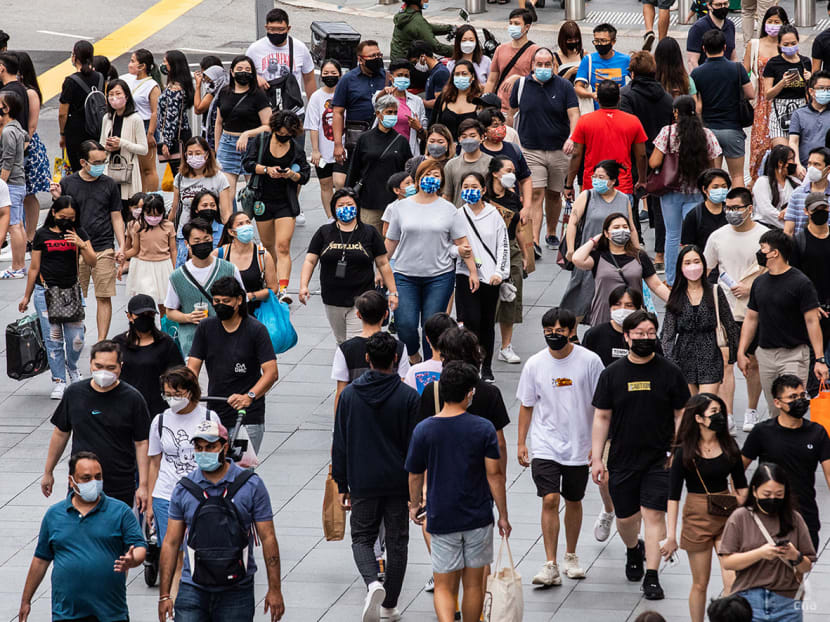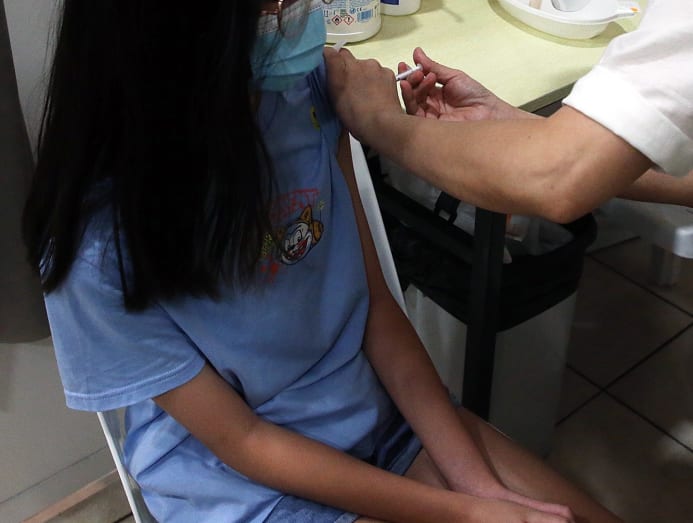Commentary: Time to face facts — we may never be rid of Covid-19 so where does Singapore go from here?

Deja vu: Covid-19 case numbers are up again. Perhaps it is time we acknowledge and accept the repeated rise and fall of Covid 19 as the new normal.
The ancestral Sars COV2 virus that was introduced first in Wuhan, China has mutated very significantly since. With its multiple mutations — 41 since the XBB 1.5 strain, or 93 mutations since the ancestral Wuhan-Hu-1 — JN.1 has adapted and evolved beyond the initial immunity from previous ancestral strain vaccination and infection.
As such, any immunity previously formed now wanes, lasting only three to six months. The virus has further adapted to shorten its incubation period to about two days. These allow the newer strains to outcompete their older cousins.
JN.1 was also found to have mutations that may confer benefits in viral entry efficiency. Truly, as a variant of Covid-19, it is at the top of its game.
As the world travel restrictions were lifted, the new evolving strains exploited the travel links. The current JN.1 strain, first detected in Luxembourg in August 2023, is fast becoming the dominant strain worldwide, leading to widespread spikes in Covid numbers across the globe.
How does one live in this new era of Covid-19?
The likelihood is that most of us will have repeated bouts of Covid-19 infection throughout our lifetime. This stems from the accumulative mutations of each new strain and the waning immunity after each infection.
I suspect new infections will occur every six to 12 months. For healthy individuals, each infection may be similar in attacks or milder. For the elderly (more than 60 years of age) and the at-risk population (those with weakened immunity), each infection could be equally devastating, if not worse, with risk of pneumonia, hospitalisation or even death.
For the at-risk population, the severity of illness could be up to two times worse than influenza. This was shown in a 2022/2023 winter season by experts at the Clinical Epidemiology Center in Missouri, US.
WHAT TO DO ABOUT IT?
Preventive measures still work. Masks and social distancing can effectively prevent transmission and reduce transmission rates. Even if transmission occurs, the theoretical advantage of a lowered viral load transmission confers benefit to the patient with a likely less severe illness.
Certainly, a well-fitted N95 mask or equivalent is superior to a regular surgical mask — which is, in turn, superior to no mask at all.
Vaccines are still the order of the day. Delivered to a large population rapidly, vaccination is a cheap and effective means of reducing infection and severity of illnesses.
A new adapted vaccine strain will be regularly recommended by the World Health Organization, to be used by vaccine producers for vaccine manufacture. We anticipate that new vaccine composition will be announced every six to 12 months, much like the influenza vaccine composition that is done every six months for the winter seasons of the northern and southern hemispheres. A booster Covid vaccine shot would update the immune system to recognise and defend against the latest strains.
There are limitations. Without any doubt, choice of vaccine composition is always retrospective, with only best estimates for future strains. Scientists are hoping to develop a universal coronavirus vaccine that may become effective against all Covid-19 variants (or pan-sarbecovirus vaccine). Individuals intolerant of mRNA vaccines (Pfizer-BioNTech or Moderna) should seek out alternative options, such as protein adjuvanted vaccines by Novavax. These are the only three vaccines publicly available in Singapore and most developed nations.
Despite vaccination efforts, we can expect that patients will still fall sick with Covid-19 — either because new strains have adapted against the vaccine composition, or that vaccine-induced immunity has waned.
The third safety net would be antiviral agents. Effective oral antiviral agents such as nirmatrelvir/ritonavir (Paxlovid) or molnupiravir (Lagevrio) has been shown in repeated studies to be effective in reducing symptoms, reducing hospitalisation, pneumonia risks, and death.
This is an important line of defence, in turn minimising stress on our already over-stretched healthcare system. Intravenous remdesivir (Veklury), another effective antiviral agent, is available for hospital use.

Even so, uncertainties remain. The greatest unknown is post-acute sequelae of Covid-19 — better known as long Covid.
An unfortunate game of Russian roulette is played with each Covid infection: Approximately 5-10 per cent of infected individuals develop long Covid. Such patients report a wide range of persistent symptoms after an infection, from brain fog, persistent fatigue to dizziness that lasts for months to years. Despite ongoing research efforts, the aetiology is still poorly understood.
With no effective treatment, prevention is still the best option. Paraphrasing WHO chief Dr Tedros Adhanom Ghebreyesus, the best way to protect against Covid-19 complications is to not get infected.
How does keeping a scoreboard of cases help?
The Ministry of Health, Singapore and many other countries regularly notify WHO on the number of Covid cases. It is still a legally notifiable disease at the clinic. But the testing of Covid-19 is not mandated in all medical consultations.
But not every country counts their Covid cases, though WHO encourages its member countries to regularly submit daily or weekly numbers. In the year ending 2023, all reporting countries announced a spike in new cases. However, the data is inconsistent and often delayed. WHO’s website, for instance, gives the impression that some countries have zero cases — but this is from a lack of reporting. Absence of data is not evidence of absence of cases.
Singapore has been reporting weekly cases since Dec 7, 2021 — a departure from the daily reporting as we accepted “living with Covid”. However, with the recent spike in numbers, daily reporting was initiated again on Dec 19, 2023. We saw a rise in hospitalisation and Intensive Care Unit cases, with numbers topping 500 and 15 respectively for each week.
However, for some, this led to an obsession with numbers and raised anxiety: For example, through much of December, pharmacies and other stores were selling out of rapid antigen test kits.
Clearly, the elevated state of alert has caused an elevated public concern with the virus. It has reminded the general public and healthcare workers that it will not do to let their guard down entirely. It has also subtly urged members of the public to get their updated vaccinations.
WHAT NOW?
Since the restart of daily reporting on Dec 19, Covid-19 case numbers have come down from the past month’s surge. I anticipate that after the current JN.1 spike, we will revert back to weekly case reporting. This would be more practical in the longer run.
However, as a healthcare professional, I would also hope to see a weekly report of the types of respiratory viruses circulating aside from Covid-19. With the advent of better diagnostics, we can diagnose other respiratory viruses such as influenza, respiratory syncytial virus, enterovirus (including hand foot mouth disease), adenovirus, metapneumoviruses, parainfluenza viruses as well as Mycoplasma. This has immediate practical value and treatment for practising physicians. For instance, a pre-test probability can be immediately determined during consultation for any upper respiratory tract infection.
Covid-19 has made us all more aware of the dangers of acute respiratory tract infections, and given us the opportunity to become familiar with crucial factors such as rapid testing, self-testing, masking, vaccinations, and antiviral agents.
We have also learned to better consider the welfare of the vulnerable among us, and how to individually take responsibility and exercise judgment in self-care.
Let us continue to take proactive steps to guard and strengthen our communities against current and future respiratory viruses and epidemics.
ABOUT THE AUTHOR:
Dr Leong Hoe Nam is an infectious disease physician at Rophi Clinic, Mount Elizabeth Novena Specialist Centre.









